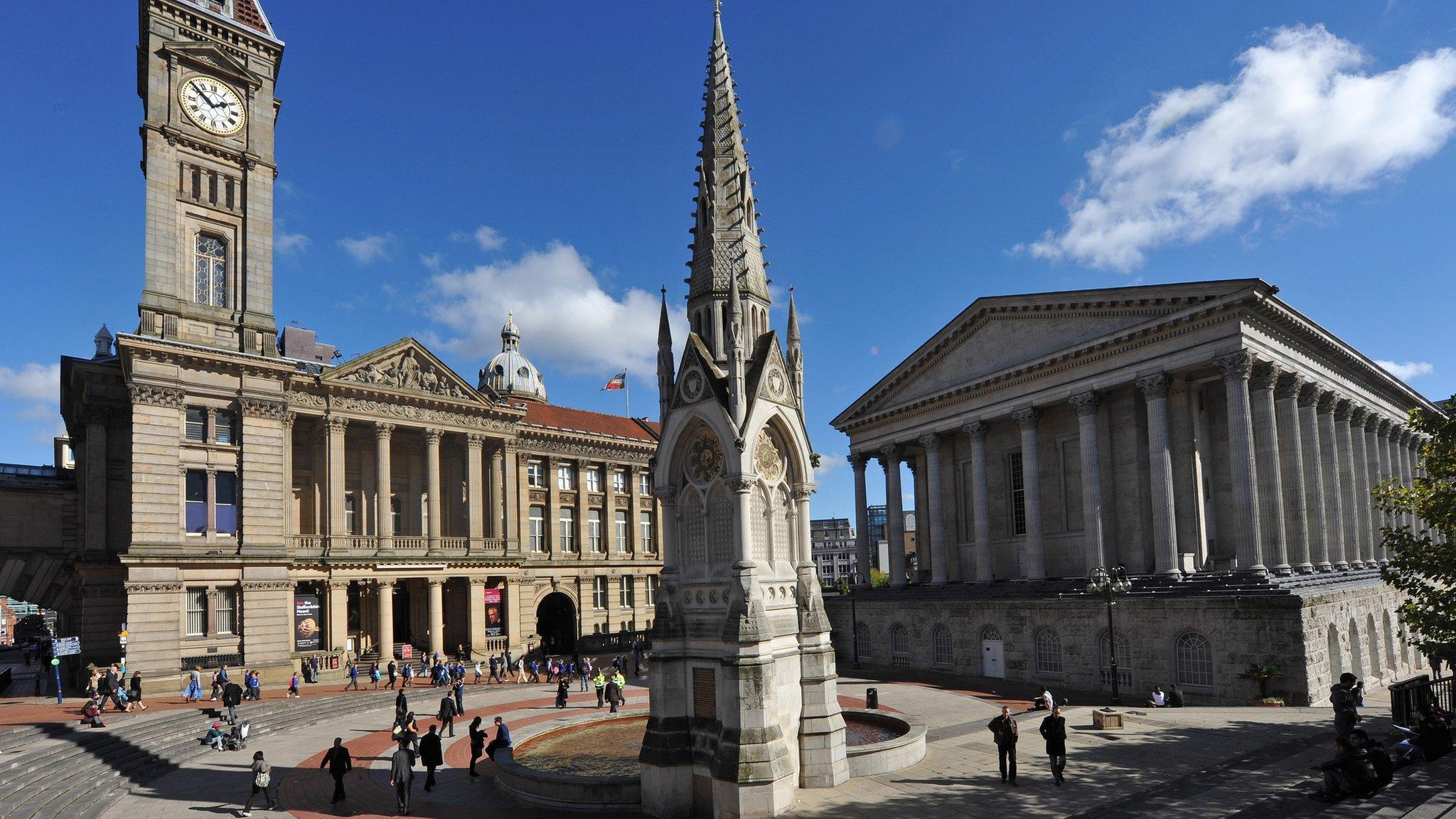Has Birmingham recovered from the 2008 recession?
- Published
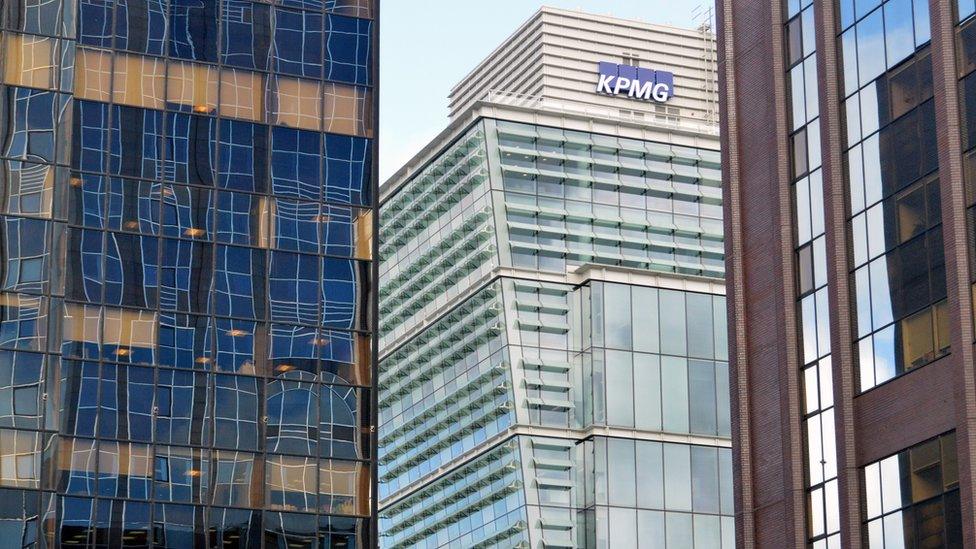
Building work in the Snow Hill area of Birmingham came to a halt after the 2008 recession but initial phases are now finished
Birmingham's skyline once stood as a symbol of the 2008 recession with its tall cranes frozen in mid air and new buildings abandoned halfway up. Eight years on and the horizon is being transformed by gleaming glass skyscrapers standing proud. Birmingham appears to have risen out of the recession but has the city recovered?
Dr Steve McCabe, economist at Birmingham City University, said signs of recovery could be measured by wages, unemployment and the Gross Value Added (GVA).
The median annual gross pay for Birmingham's full time workers is currently £28,504, which is higher than the £27,872 median across England, according to the Office for National statistics, external.
The percentage of the city's 16 to 65-year-olds claiming job seekers allowance was 5.8% in 2008, external and rose to 7.5% in 2012, external.
It is now down to 3.3% - but this is more than double the percentage for England at 1.2% according to ONS figures out this week., external
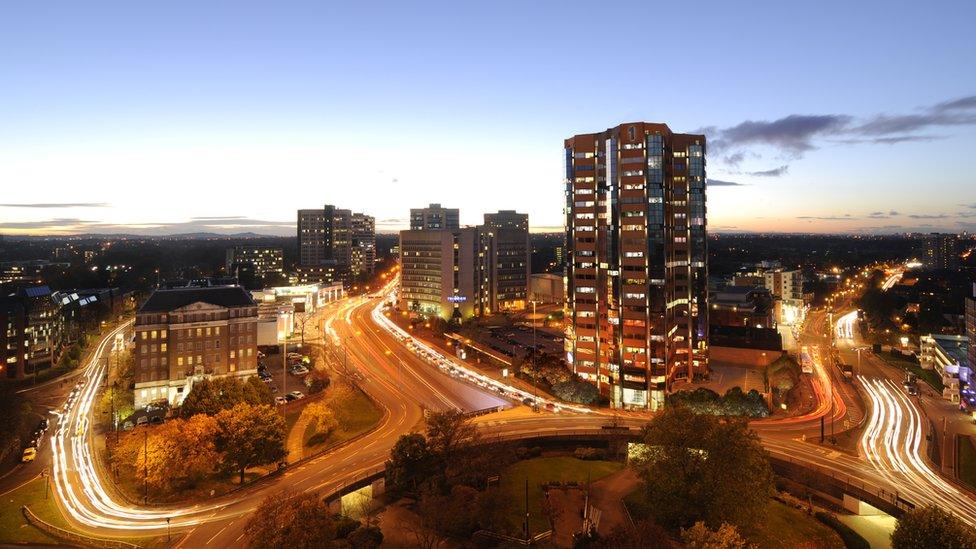
Metropolitan House was renovated to become One Hagley Road, a tower of 271 apartments on the west end of Broad Street
The GVA gives a value for the amount of goods and services produced, less the cost of all inputs and raw materials.
Birmingham's Real GVA, external for 2009 was £21,117 per head, it dropped to £20,594 in 2012 and the provisional figure for 2014 was £21,093. So it is not quite back up to its former productivity.
Birmingham falls behind Manchester, Leeds, Liverpool and Nottingham in terms of latest GVA figures. But it is ahead of Tyneside and Sheffield.
"Birmingham is recovering but more slowly than, for example, Manchester," said Mr McCabe.
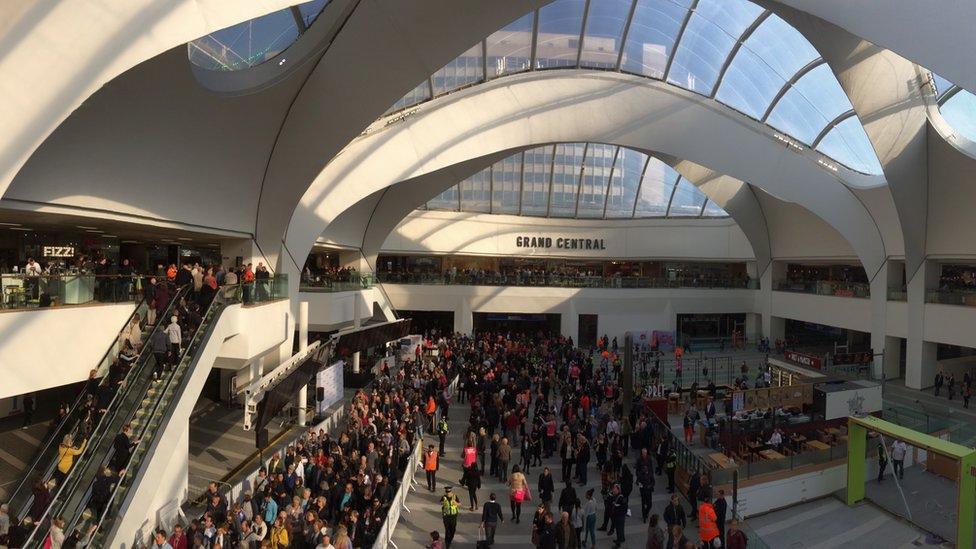
Grand Central shopping centre opened in September 2015
Figures aside, Mr McCabe thinks Birmingham is suffering from an identity crisis following the recession.
"As a city that is trying to develop itself as a place of post-industrialism, Birmingham has image problems and, perhaps lacks the assertiveness of other UK cities."
But Paul Bunce, commercial manager at hotel and meeting centre Conference Aston, believes Birmingham's image has never been better.
"People are finally seeing Birmingham as a destination for business.
"The amount of organisations using Birmingham as a meeting place is the highest I've seen it in 10 years.
"Thanks to developments like Grand Central shopping centre people are extending their stays to go shopping and sight seeing."
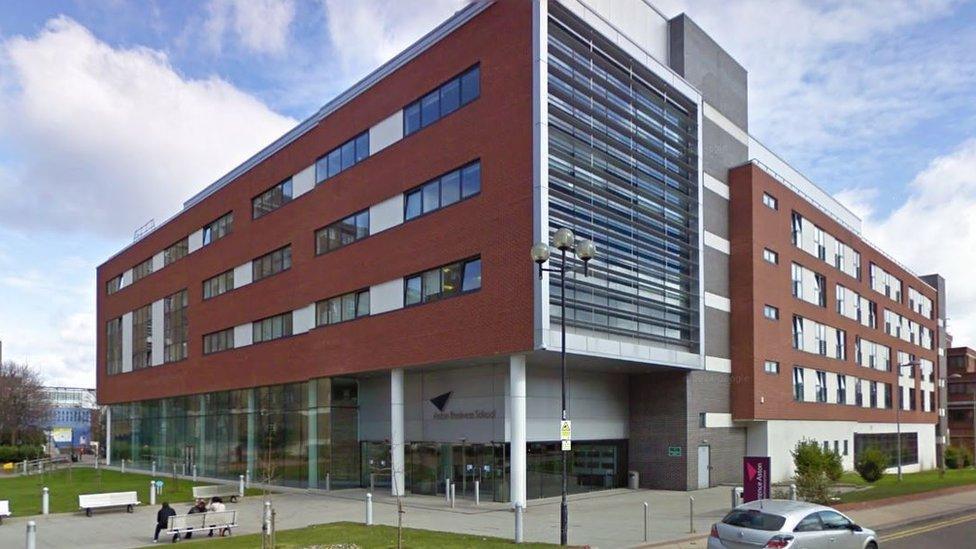
Conference Aston is a hotel and meeting centre owned by Aston University

What has changed in Birmingham?

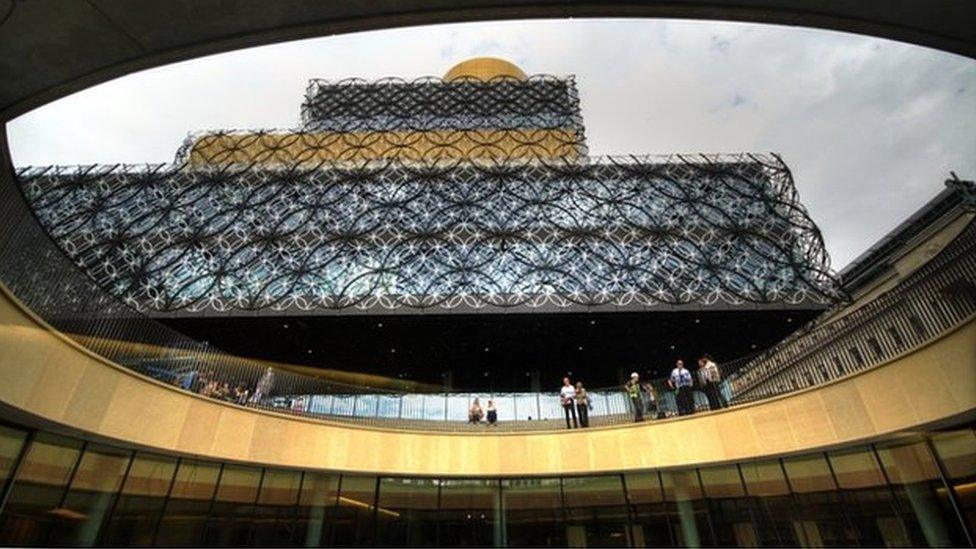
The Library of Birmingham replaced Birmingham Central Library in April 2013
Opus restaurant owner Ann Tonks said her businesses were "a really interesting bellwether for what's going on in the city."
"We had a real leap in 2014 - I'm talking double figures in the number of people coming through the doors and private dining bookings for months in advance.
"In the last four or five years in the Colmore business district the scene has exploded.
"The number of independent operations we have shows things are booming.
"The more successful Birmingham is the more competition there is."
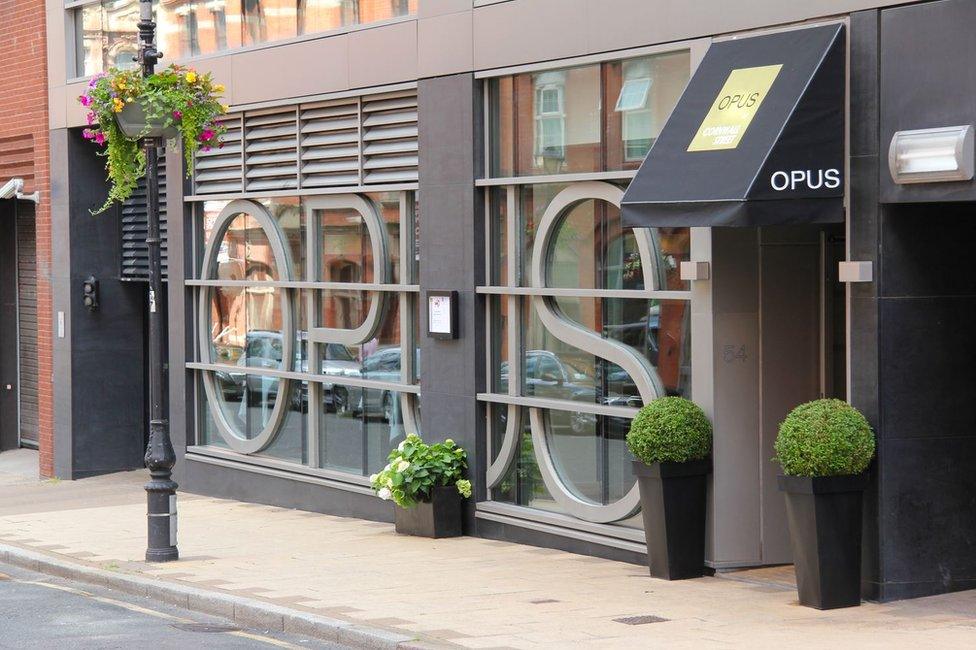
The owner of Opus restaurant in Colmore's business district later opened a Bar Opus at One Snow Hill near the new Metro station
But Birmingham's "success" has not been without its problems.
An extension to the Midland Metro tram network through the city was delayed by several weeks, with technical issues with underground cabling being blamed. It was also revealed the network has not made a profit since it was opened in 1999, in fact it has lost £34m since.
Bosses are hopeful the planned extensions to Edgbaston and Centenary Square will bring in nine million passengers per year by 2026. It is currently used by about five million.
And, less than two years after its opening, hours at the Library of Birmingham were cut by nearly half to save money.

Analysis by Peter Plisner, Business Correspondent, BBC Midlands Today
Birmingham has gone from being that place you moved to if you had to - to the first choice for people leaving London for a better way of life.
It's an amazing turnaround and it's something that the city has had to work hard to achieve.
Several landmark projects have boosted Birmingham's fortunes, including the Bullring shopping centre, external more than a decade ago and more recently the revamp of New Street station.
Proof that both have made a big different can easily be seen with the regeneration that's happened since they were first talked about.
Once derelict sites close to the city centre have either been developed or are now prime development sites.
Now with trams passing through the city's streets too, Birmingham's rise from recession really has turned into a major achievement. Drab to fab in less than a decade!

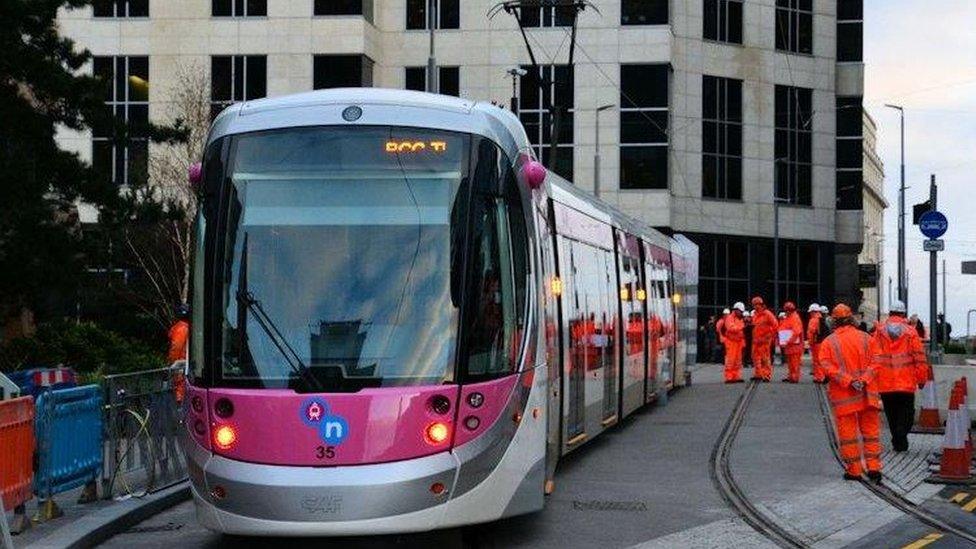
Trams returned to Birmingham city centre in December 2015
Steve Brittan was president of the Greater Birmingham Chambers of Commerce in 2012/2013.
He said: "Birmingham was in a mess then as the whole country was after the recession. The chamber wasn't on a good footing. We were haemorrhaging members and subsequently money.
"Then the Greater Birmingham and Solihull LEP came along and we established a very good relationship with Birmingham City Council to promote the city as the go to place for business.
"Since then Birmingham and the chamber have completely turned around."
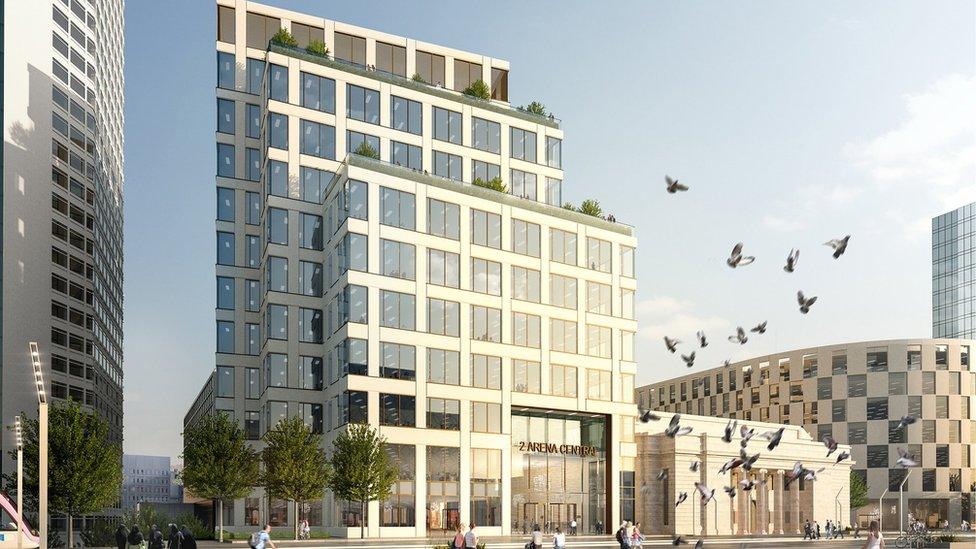
HSBC believes being in Birmingham adds up as the bank is in "advanced negotiations" for a 250-year lease on a new office at Arena Central in the city centre
Paul Faulkner, chief executive of Greater Birmingham Chambers of Commerce, said: "This is truly a period of renaissance for Greater Birmingham.
"As well as all of the amazing regeneration work being undertaken, we have the exciting prospect of further powers being devolved from Whitehall.
"And the region is unifying from the Black Country to Coventry and Warwickshire with the creation of the West Midlands Combined Authority.
"With the government re-affirming its commitment to HS2 and further devolved powers for the region, there cannot be a more optimistic and promising era for this region."
Mr McCabe said: "Birmingham has the youngest population of any city in Europe so what it really needs to be doing is creating jobs faster than we are losing them.
"The way Birmingham looks, the environment has improved. It has got over the recession. But I still think the wounds are not too far beneath the surface."

We asked you to choose from three of Your Questions and this was the most popular.
Matthew Morris asked: "What has changed in Birmingham since 2008? Has the city recovered from the recession?"
- Published4 February 2015
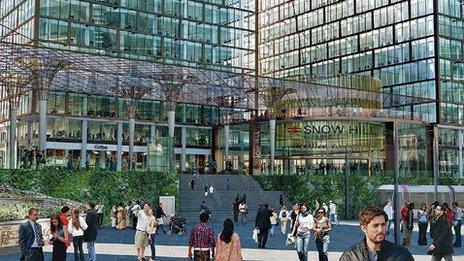
- Published20 September 2015
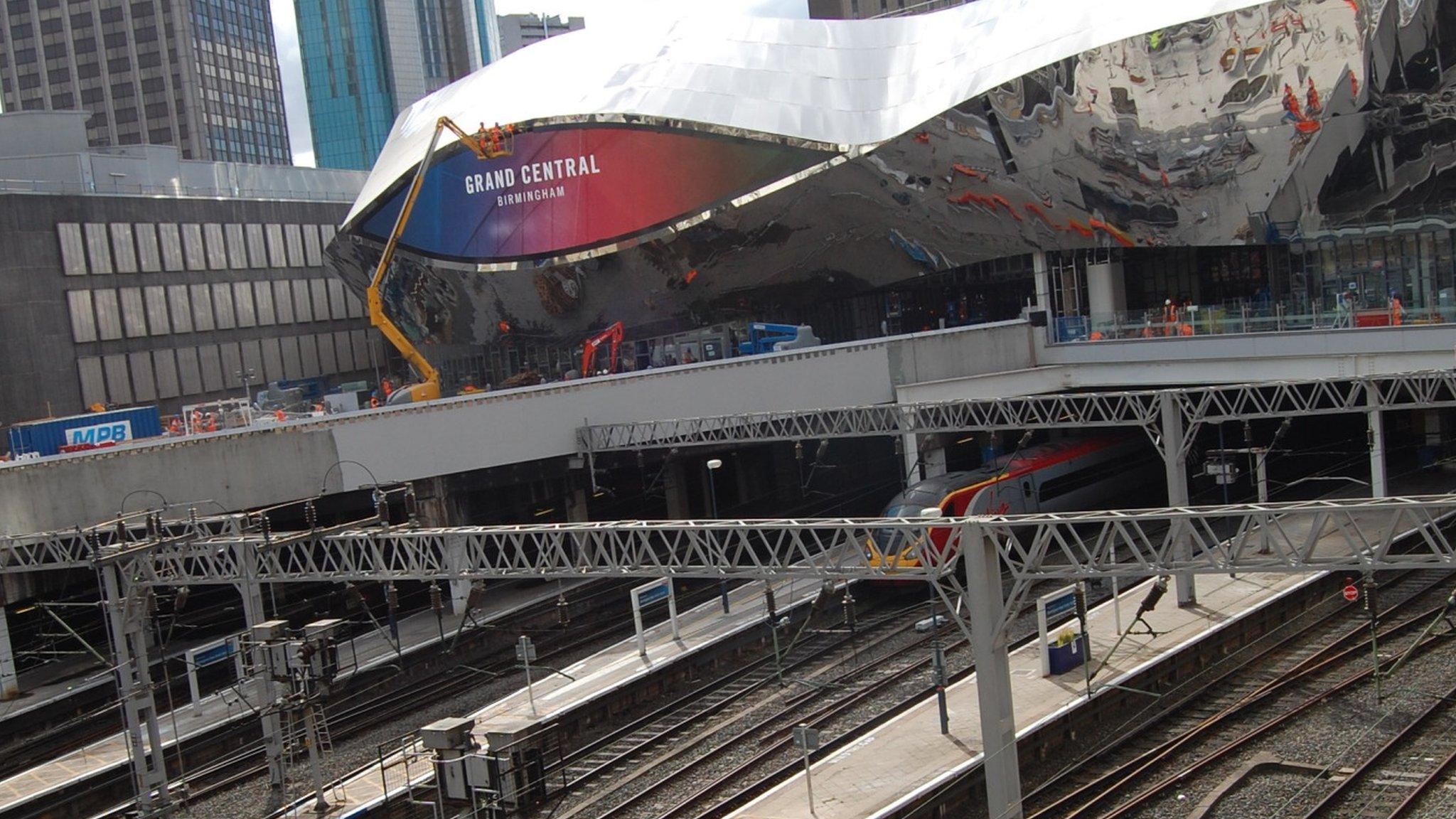
- Published7 October 2016
